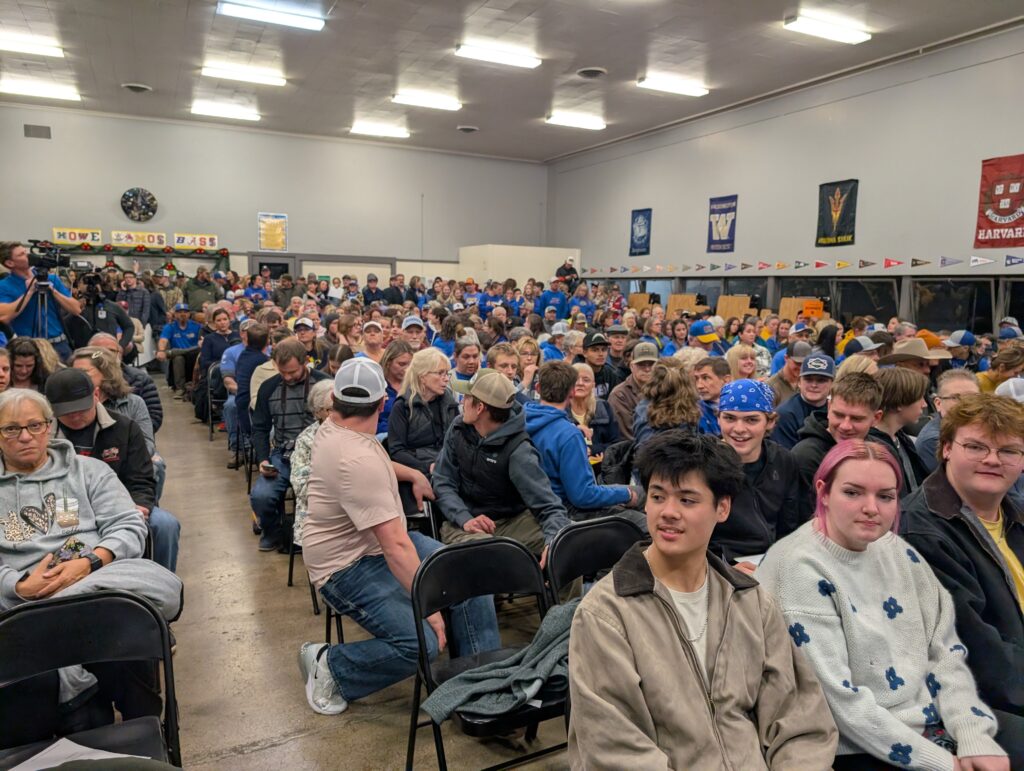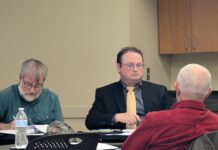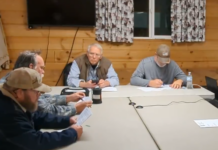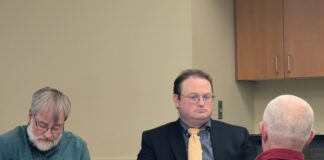
Prineville, Ore. – The Prineville Review has released audio of a Dec. 9th, 2024, executive session held by the Crook County School Board. This decision follows the results of yesterday’s meeting (Dec. 16th), where the school board avoided substantive discussion during the open meeting after previously holding an illegal executive session behind closed doors.
The audio reveals approximately thirty minutes of deliberation that the board sidestepped during the open meeting. We are now providing transparency to ensure accountability for these actions.
Factors Influencing Our Decision
- The executive session undoubtably violated the law, as well as the rights of a public official (in this case Mr. Bonner). The recording even confirms that the reading declaring the executive session even specifically mentions that the session would only be proper if the official does not require an open hearing.
- The school board attempted to remedy their initial violation by starting over with a new executive session. This session included the legally required written notice to Mr. Bonner, giving him the option to request an open hearing—an option he exercised. However, when the open meeting occurred on December 16th, the board avoided deliberations entirely and moved directly to a vote. While likely legally permissible, this action denied the public insight into the board’s views and reasoning on a matter of significant interest that it previously used an illegal executive session for.
- Without revealing the substance of the deliberations, we consulted Mr. Bonner to determine if he would object to the release of the audio. Since he was previously denied the right to request an open session, we felt this was an appropriate step. Mr. Bonner did not object. If he had objected, we would not have revealed the contents of the executive — even individually to Mr. Bonner.
- Oregon law allows executive sessions to protect the privacy of a public official under review. The choice to hold an open or closed session belongs solely to the public official, not to the elected board conducting the review. This protection is not intended for the board itself — especially when deliberations are improperly held in secret while denying the official the right to an open hearing.
- Throughout this process, the school board repeatedly avoided confirming whether Mr. Bonner had been properly notified, further undermining transparency. If it had provided the proper notice, there would have been no reason to restart the process and provide notice to Mr. Bonner.
The Impact
We acknowledge the possibility of legal action from the district, particularly given its legal counsel’s previous assertions that recording executive sessions is prohibited. However, while Oregon law typically restricts reporting on the content of executive sessions, it does not prohibit recording such sessions.
Moreover, Oregon law — supported by opinions from the Oregon Attorney General — makes it clear that members of the news media face no legal consequences for reporting on the content of an executive session, even if the session was conducted lawfully. This precedent has allowed journalists throughout Oregon to ensure government accountability when public trust is violated.
With that in mind, we call on the Crook County School Board to undertake a future decision formally declaring that the executive session was improper and that disclosure was in the public interest.
Our decision aligns with journalistic practice when addressing executive sessions held in violation of Oregon law. The absence of penalties for reporting such matters enables the press to fulfill its role as a check on government power.
We believe the public’s right to transparency far outweighs the risks amid the potential of government retaliation. Upholding this principle ensures that we meet our journalistic duty to hold the powerful accountable. As the SPJ Code of Ethics states, journalists have a “special obligation to serve as watchdogs over public affairs and government” and must “seek to ensure that the public’s business is conducted in the open, and that public records are open to all.”
Melinda Thomas, an attorney for the school district with the High Desert Education Service District, previously referenced Oregon’s restrictions on surreptitious recording during executive sessions. However, in July 2023, the 9th Circuit Court of Appeals ruled that Oregon’s surreptitious recording law was unconstitutional under the First Amendment for public recording.
While Oregon’s law was previously an outlier — shared only by Alaska, Kentucky, Massachusetts, and Montana — the 9th Circuit’s decision likely invalidates similar laws in Alaska and Montana, which also fall under its jurisdiction. As a result, only Kentucky and Massachusetts retain comparable laws.
This decision is an undeniably uncomfortable one to make, but necessary to fulfill our obligation to ensure that the rights of Oregonians and Crook County residents are upheld. It reflects our commitment to transparency, accountability, and adherence to the principles of the U.S. and Oregon constitutions.
By exposing violations of public trust, we aim to ensure that local government operates in accordance with the law and in full view of the public it serves.
A video is provided below with the meetings audio. The provided recording does indicate a portion where approximately 15 minutes was removed to shorten the audio. During this time the board members were quietly reviewing copies of a written report related to the matter involving Mr. Bonner.
You can view all of our recent reporting on the Crook County School District by clicking here. Additional information can be found on our Facebook or X (formally Twitter) pages.
Mr. Alderman is an investigative journalist specializing in government transparency, non-profit accountability, consumer protection, and is a subject matter expert on Oregon’s public records and meetings laws. As a former U.S. Army Military Police Officer, he brings a disciplined investigative approach to his reporting that has frequently exposed ethics violations, financial mismanagement, and transparency failures by public officials and agencies.





